Premium Only Content
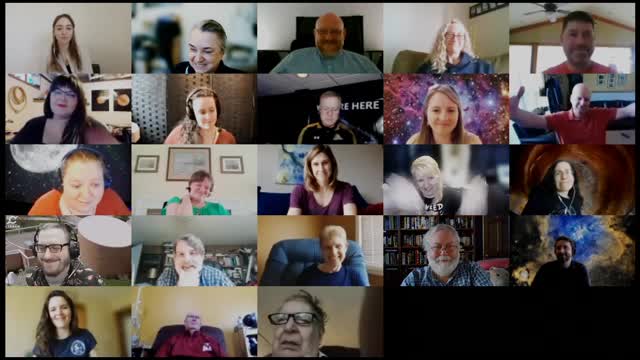
WIMPS meeting 5-1-21 (virtual)
WIMPS meeting 5-1-21 (virtual) with neighboring states
8:30 AM Meeting room opens, Social time
9:00 AM Welcome and Intros
9:10 AM Aubrie Vivant
Space Chase: Student Webisodes
Minnesota State University Moorhead Planetarium
Space Chase is a web series targeting students from first to third grade. I will be covering information about the planets in our solar system for this season of the show.
9:25 AM Matt Young
The EHS Planetarium: A Half-century Orbiting the Sun
Euclid Planetarium
The EHS Planetarium is fifty! Let's bend space and time to take a quick look back at the last 50 years and a sneak peak of its stellar future.
9:45 AM Bob Bonadurer
Soref Space Stories
Daniel M. Soref Planetarium, Milwaukee Public Museum
Been an odd orbit for all of us.... I will share a few cosmic tales of staying busy and relevant during these challenging days.
10:05 AM Jack Dunn
The Neon Radiator Synthesizer for Laser
SEPA, MAPS, GLPA, GPPA memberships take your pick
A live controller digital synthesizer for producing laser imagery
10:15 AM BREAK
10:30 AM Dave Weinrich
OPEN the Possibilities!
GLPA
One Planet Education Network (OPEN) is doing some wonderful STEAM activities with young people around the world. Most of their programs give the participants the opportunity to work with real data. Could we develop an astronomy unit that they could use?
10:50 AM Sara Schultz
Updates from the MSUM Planetarium
MSUM Planetarium
Where we're at and where we're going! An update on all things at Minnesota State University Moorhead Planetarium.
11:05 AM Jean Creighton
Astronomy in a storytelling course
Manfred Olson Planetarium at the University of Wisconsin-Milwaukee
To improve undergraduate students' science literacy, we infused astronomical themes into a storytelling course called "Tale of Scale." I will share with you the findings from two pre-pandemic sections of the class.
11:25 AM Mike Smail
IPS Update
Adler Planetarium
A quick look at what's new and exciting with the International Planetarium Society.
11:35 AM Erick Hernandez
The ESRU Cycle in a Planetarium Setting
MSUM Planetarium
The ESRU cycle is a way to assess formative assessment, focused on assessment conversations. This presentation talks about research done to gauge the use of formative assessment in planetariums, as well as ways to education planetarium presenters about how to incorporate formative assessment during presentations.
11:50 AM Marah West
TikTok and the Planetarium
MSUM Planetarium
With Covid 19 being so prevalent and we can’t do in-person shows, so this semester I have been posting short entertaining and informational clips about the mythology associated with the constellations in our night sky on the popular social media site TikTok. I use scripts written by other planetarium staff plus my own research and condense the information into family-friendly sixty-second skits that anyone can have access to. In this presentation, I will discuss my approach to these videos, the challenges and successes I have had, and what has come out of doing them.
12:00 PM Matt Caplan
Educating the Public Online - The Role of the Internet in A Pandemic Year
Illinois State University
The COVID-19 pandemic has for the past year obliterated science education for a generation of young people, both in schools and in planetariums. As the majority of students found themselves learning online the role of digital media has been more important than ever, and in response digital content creators have had sustained demand for new media. I will discuss some of the challenges faced by educational YouTube channels, their output during the pandemic, and the impact this sustained productivity has had on science education- both during the pandemic and beyond.
12:15 PM LUNCH BREAK
1:15 PM Julieta Aguilera
Evidence across scales and adult engagement
Independent
It is not only the Universe that is an abstraction of data mapped to our human experience though immersion and interaction in our domes, but most aspects of our planetary life. And yet as adults we may find ourselves out of sync with today's data driven reality and may not feel empowered by the data, having only practiced evidence based data collection, classification and analysis in physics or chemistry classes while at school decades ago. How do we include language that ease our adult demographics into connecting our direct experiences of evidence driven actions to larger scales within realms for which the results of our immediate behaviors may be hidden?
1:30 PM Renae Kerrigan
Upgrades and Updates to the Dome Planetarium and Peoria Riverfront Museum
Peoria Riverfront Museum
A long overdue upgrade is taking place in the Dome Planetarium this May. In the larger Peoria Riverfront Museum, most of our gallery spaces have been updated in the past year. I'll share photos and stories from the Dome and museum gallery updates in this brief presentation.
1:45 PM Mike Murray
Promoting Your Online Content
Delta College Planetarium
Facebook Live, YouTube, Podcasts - how do you get them in front of the public? We'll look at some methods for increasing viewership.
2:00 PM Dayna Thompson
Free Variable Star Planetarium Shorts
Ball State University, Brown Planetarium
Ball State University has partnered with the American Association of Variable Star Observers and the International Planetarium Society to create free monthly planetarium shorts for the community. Learn more about this initiative and how you can download them for your dome.
2: 15 PM BREAK
2:30 PM Lily Myers
Using Technology to Your Advantage: Transitioning a Planetarium to the Web
MSUM Planetarium
The COVID pandemic changed things for everyone. Social distancing and quarantine kept people from doing what they normally do. During this time, MSUM Planetarium moved its content online, kept students involved, and learned how to reach their audience like never before. In this presentation I aim to educate my audience on how the pandemic has affected a solely in-person organization, how technology has been both helpful and harmful, and some online tools that may help others. I will include statistics reflecting our before and after COVID audience, short videos as examples of our online content, and a comparison of our social media content pre-pandemic and now.
2:45 PM Madison Rechtzigel
Space Stories Read Aloud
MSUM Planetarium
"Space Stories" is an MSUM Planetarium virtual project created as a means to establish a better connection with our audience during the pandemic. Due to the decrease of in-person shows, the planetarium has had to find more creative ways to reach our audience without putting anyone at risk. "Space Stories" is a series of videos in which children's books are read out loud and uploaded onto YouTube for young kids to follow along with and listen to at home.
3:00 PM Autumn Grosz
Stellar Stories and Moony Monday: Education in a Digital Age
MSUM Planetarium
This past year I created two educational series on YouTube and Instagram. One focused on the use of stars in literature, and the other focused on Earth’s moon. These projects help give insight to how social media can help in education.
3:05 PM Mark Trotter
Bowen Technovation and a new era
Bowen Technovation
There have been many changes at Bowen Technovation during the past year. I will present a short update on what we have been doing.
3:15 PM Raymond Zich
Results from Incorporating Computational Exercises into a General Astronomy Course
Illinois State University
We report on the results from including computational activities to a single semester general astronomy course. Collaboratively completed spreadsheet-based computational exercises added to the course to increase student involvement with the material and improve student connections between formulae and results. These exercises were tied to the course topics and complemented other active learning coursework. We will report on influences that led to the inclusion of computational activities discuss the types of exercises, reflect on the factors that supported the change, and barriers encountered. Results from quantitative and qualitative assessments investigating student learning, attitudes toward computational exercises, and perceptions of the course will be discussed. We found that there were not significant pre to post differences for the TOAST or LPCI, but 86% of students found the computational exercises helpful in learning the material.
3:30 PM INDIVIDUAL STATE BREAKOUT ROOMS
Please put the state you wish to attend in the chat so we can place you in the correct room.
3:50 PM MEETING WRAP UP
-
 14:47
14:47
GritsGG
8 days agoRumble Tournament Dubular! Rebirth Island Custom Tournament!
106K5 -
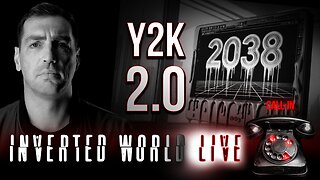 2:03:11
2:03:11
Inverted World Live
9 hours agoY2K 2.0 | Ep. 104
128K9 -
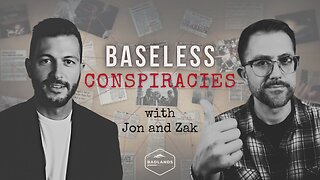 2:02:53
2:02:53
Badlands Media
13 hours agoBaseless Conspiracies Ep. 149: Epstein Docs, Charlotte Stabbing, and Trump’s Next Moves
46.5K16 -
 2:56:12
2:56:12
TimcastIRL
8 hours agoTrump SLAMS Democrats Over Irina Zarutska Killing, Says WAR Over Chicago Crime | Timcast IRL
193K119 -
 29:08
29:08
Afshin Rattansi's Going Underground
1 day agoCol. Lawrence Wilkerson: World War 3 is ALREADY HERE, Netanyahu is INTENT on Greater Israel
24.9K26 -
 7:24:49
7:24:49
SpartakusLIVE
9 hours agoNONSTOP Snipes, Rockets, and BICEPS = Monday MOTIVATION
77.5K1 -
 6:31:35
6:31:35
Rallied
10 hours ago $4.55 earnedSolo Challenges All Day
63K2 -
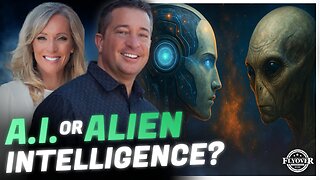 1:27:53
1:27:53
Flyover Conservatives
13 hours agoIs AI Actually Alien Intelligence? Dr. Jason Dean Exposes the Dark Side | FOC Show
53.6K6 -
 1:47:36
1:47:36
Glenn Greenwald
10 hours agoJD Vance and Rand Paul Clash on Due Process: War on Terror Echoes; Has the U.S. Given Up on Confronting China? Ben Shapiro's Latest Falsehoods About Israel | SYSTEM UPDATE #510
118K94 -
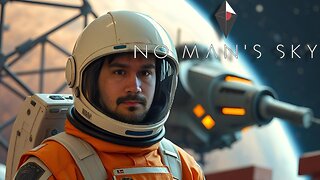 LIVE
LIVE
RaikenNight
7 hours ago $5.82 earnedExploring the Galaxy of No Mans Sky
1,048 watching